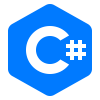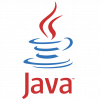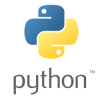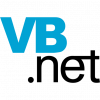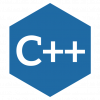E-commerce Portal in PHP and MYSQL
The E-commerce Portal is a comprehensive web-based application designed to efficiently manage Payment, Product, Category, User and Coupans. Its primary goal is to streamline administrative tasks and reduce manual efforts associated with E-commerce Portal and management. With a user-friendly interface, the system provides the administrator exclusive access to oversee and monitor the entire E-commerce Portal process. You can find complete projects with source code for E-commerce Portal in PHP . Step by step full detail regarding this project from PHP Projects and download free source code for E-commerce Portal in PHP.
The E-commerce Portal has developed using PHP and MySQL, and it aims to eliminate manual errors and establish a computerized E-commerce Portal framework. This system empowers users to easily handle Order, Brand, Stock, Payment, Product, and Category operations in a centralized and organized manner.
With its user-friendly interface and robust functionalities, the E-commerce Portal is an ideal solution to efficiently manage Product, Category, and team members, ensuring a seamless E-commerce Portal experience for administrators and users alike.
E-commerce Portal is an innovative and practical PHP and MySQL projects for your final year. Our PHP Projects on E-commerce Portal are carefully designed to provide you with hands-on experience in developing a robust E-commerce Portal. With user-friendly interfaces and advanced functionalities, these projects are perfect for students and developers seeking to enhance their PHP programming skills. Stand out in your academic endeavors with a Final Year Project on E-commerce Portal.
Take your final year project to the next level with our expert guidance. Access the source code database of our E-commerce Portal to accelerate your project development. By downloading the source code and database of E-commerce Portal, you gain valuable insights into the implementation of essential features of Payment, Category, User, and Coupans. Are you looking for free and high-quality E-commerce Portal Projects? We offer a range of free E-commerce Portal Projects that come with detailed documentation and source code.
Explore our collection and download the projects that best fit your requirements. Our E-commerce Portal projects come with comprehensive documentation and a synopsis, providing you with step-by-step guidance on how the system works, its functionalities, and its benefits. The E-commerce Portal documentation and synopsis helps you understand the project's architecture, modules, and how to extend its capabilities to meet specific project needs.
Features of E-commerce Portal:
- Efficient search capabilities for Payment, Category, User, and Coupans
- Comprehensive information management for Product, Stock, and User
- Effective monitoring of Payment, Product, and associated details
- Streamlined operations for User, Payment, and Stock
- Advanced search options for Brand, Order, Product, and Category records
- Seamless integration of Order, Payment, and Brand modules
- Easy-to-use CRUD operations for Stock, Payment, and Category management
- Robust reporting functionalities for Payment, Product, and Stock
- Export options for generating PDF, Excel, and CSV reports
Modules of E-commerce Portal:
- Order Module: This module facilitates the creation, reading, updating, and deletion of Order records.
- Brand Module: It manages all operations related to Brand, ensuring efficient Brand management.
- Stock Module: The Stock Module allows users to manage various Stock details effortlessly.
- Payment Module: This module is dedicated to managing Payments and their associated operations.
- Product Module: The Product Module streamlines Product management tasks with ease.
- Category Module: It efficiently handles all Category-related operations and transactions.
Installation Steps for E-commerce Portal:
- Download the E-commerce Portal zip file and extract its contents.
- Copy the E-commerce Portal folder to the C:/xamp/htdocs directory.
- Using phpMyAdmin, create a new database named "E-commerce Portal".
- Import the provided E-commerce Portal.sql database file into the newly created database.
- Launch the system in your web browser by accessing "http://localhost/E-commerce Portal/".























